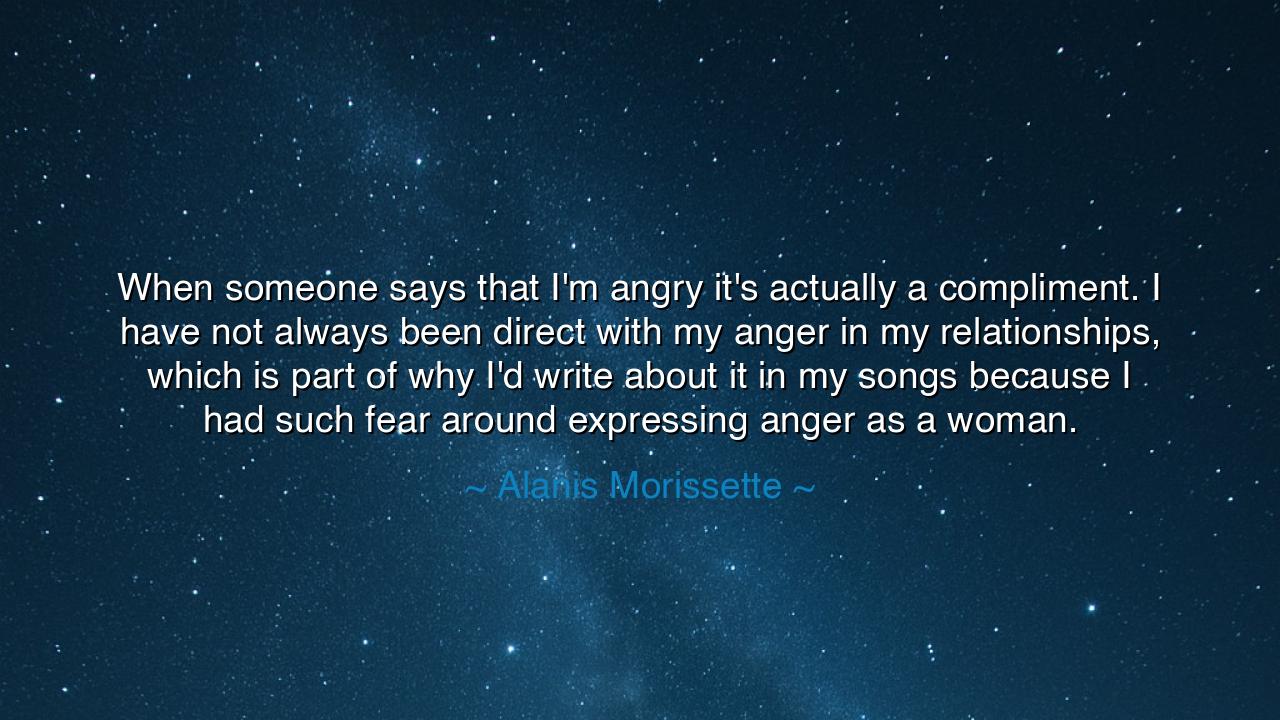
When someone says that I'm angry it's actually a compliment. I
When someone says that I'm angry it's actually a compliment. I have not always been direct with my anger in my relationships, which is part of why I'd write about it in my songs because I had such fear around expressing anger as a woman.






Yes — that quote is correctly attributed to Alanis Morissette, the Canadian-American singer-songwriter and actress known for her emotionally raw and introspective music, particularly her landmark album Jagged Little Pill (1995).
“When someone says that I'm angry it's actually a compliment. I have not always been direct with my anger in my relationships, which is part of why I'd write about it in my songs because I had such fear around expressing anger as a woman.”
— Alanis Morissette
Context and Background
Alanis Morissette made this statement in interviews reflecting on her songwriting and emotional expression, particularly in relation to how society perceives women and anger. She has long discussed how her music — notably songs like You Oughta Know — allowed her to explore feelings she once suppressed.
This quote encapsulates her perspective on art as emotional liberation: that songwriting became a safe and empowering space to express anger, frustration, and vulnerability in ways she felt she couldn’t in her personal life.
Interpretation
-
“When someone says that I'm angry it's actually a compliment” — she reframes anger not as something shameful but as a sign of honesty, strength, and authenticity.
-
“I had such fear around expressing anger as a woman” — she points to the cultural double standard that often discourages women from showing anger, labeling them as “emotional” or “unfeminine.”
-
“I’d write about it in my songs” — art becomes both therapy and rebellion, transforming fear into creative power.
Summary
This quote beautifully captures Morissette’s feminist and psychological insight: that acknowledging and expressing anger is essential to wholeness. Through her music, she challenged stereotypes and helped redefine emotional expression for women in popular culture — turning what was once taboo into a source of strength, truth, and connection.






AAdministratorAdministrator
Welcome, honored guests. Please leave a comment, we will respond soon